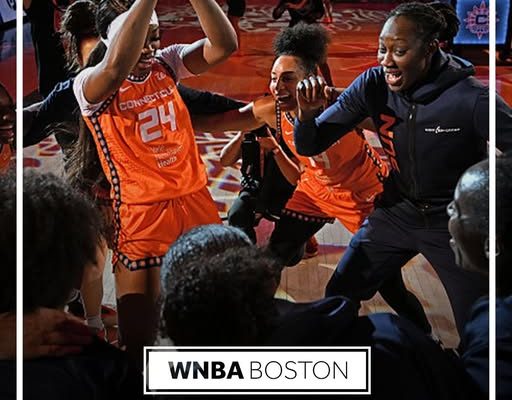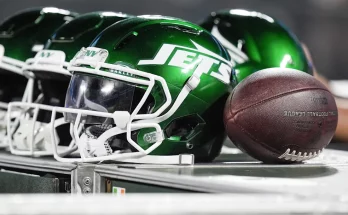The world of professional basketball was rocked by a stunning announcement that will reverberate across both the WNBA and NBA landscapes for years to come. A group led by Boston Celtics minority owner Steve Pagliuca has reportedly reached a groundbreaking deal to purchase the Connecticut Sun for a record-setting \$325 million, with plans to relocate the franchise to Boston. While ownership changes are not unusual in the evolving sports world, what makes this move so monumental is both the scale of the transaction and the implications for the future of women’s professional basketball in the region.
Pagliuca, a prominent private equity investor and longtime co-owner of the Boston Celtics, has long been interested in expanding his footprint in professional sports. But few could have predicted that his ambitions would take such a bold turn—acquiring a WNBA franchise and shifting its entire operations to the same city as his NBA team. The Connecticut Sun, who have been based in Uncasville and owned by the Mohegan Tribe since 2003, have been a model of stability, success, and community integration. The proposed move, therefore, doesn’t just signal a financial or logistical shake-up; it represents a seismic cultural shift for the WNBA.
The \$325 million price tag is the highest ever paid for a WNBA team and reflects a growing market for women’s sports. In recent years, the WNBA has enjoyed increased visibility, higher TV ratings, and a significant influx of sponsorship deals. From record jersey sales to heightened interest in the college-to-pro pipeline, momentum has clearly been building. Pagliuca’s acquisition represents a massive vote of confidence in the league’s long-term viability, but also raises complex questions. Will the new Boston-based team retain the Sun’s legacy? What becomes of the loyal fan base in Connecticut that has supported the team for over two decades? And how will this new power dynamic shape the WNBA’s competitive and commercial structure?
Sources close to the sale suggest the deal is expected to close by the end of the calendar year, pending league approval. Already, league officials are scrambling to assess the full ramifications. According to reports, Pagliuca and his group plan to invest heavily in facilities, branding, and player development, with the intention of turning the new Boston franchise into a flagship operation for the WNBA. The team is likely to share some logistical or performance-related infrastructure with the Celtics, though it’s unclear whether the two organizations will have overlapping leadership structures beyond Pagliuca’s personal involvement.
The Connecticut Sun have been one of the WNBA’s most consistently successful franchises on the court. They’ve made multiple Finals appearances and produced household names like Jonquel Jones, Alyssa Thomas, and Chiney Ogwumike. Yet despite their success, they’ve often flown under the national radar. Located in the relatively small market of Uncasville and playing home games at the Mohegan Sun Arena—a facility located inside a casino resort—the Sun have struggled to capture the kind of national media attention that bigger-city teams enjoy. That could all change with a move to Boston, one of the most storied and sports-obsessed cities in America.
For WNBA players and agents, the move could represent new opportunities as well as new risks. The allure of playing in a major market with world-class facilities and a strong basketball culture could attract top-tier talent. On the other hand, such moves can also unsettle team dynamics and complicate player relationships with existing fan bases. The emotional toll of leaving a city that has passionately supported its team for 21 years should not be underestimated.
For Connecticut sports fans, this is a gut punch. The Sun have been an integral part of the community since the early 2000s, offering not just world-class basketball but a sense of pride and identity. The Mohegan Tribe made history as the first Native American tribe to own a professional sports franchise, and their stewardship of the Sun was widely regarded as a success story in sports ownership. Losing the team to Boston not only removes a major sports attraction from the region but also marks the end of a significant cultural chapter.
That said, there may be some consolation in the financial terms of the deal. The record-setting sale could serve as a template for future WNBA transactions, setting new benchmarks for franchise valuations and proving that investment in women’s sports can pay off in big ways. League commissioner Cathy Engelbert has long spoken of expanding the WNBA’s commercial footprint and increasing team valuations. This sale gives her and the league a compelling proof point.
There are also political and cultural implications. Boston has long been a city with a complicated history when it comes to race and gender inclusion in sports. Bringing a WNBA team into the fold could help further the city’s evolution toward a more inclusive and progressive sports culture. With women’s sports gaining momentum globally—from record-setting viewership of the NCAA women’s basketball tournament to rising attendance figures in women’s soccer leagues around the world—the timing could not be more appropriate. Boston now has the chance to become a leader in this growing movement.
Pagliuca’s track record with the Celtics lends credibility to the move. Since joining the Celtics ownership group in 2002, he has helped oversee one of the most successful stretches in franchise history, including the 2008 NBA Championship and a return to prominence in the 2020s. His business acumen, combined with a deep understanding of the sports ecosystem in Boston, suggests he may be well-positioned to make this ambitious vision a reality.
Still, logistics will be a challenge. Where will the new Boston team play? TD Garden is an obvious choice given its ties to the Celtics, but scheduling conflicts could complicate matters. Some sources have floated the possibility of a new arena or using a university facility temporarily. Additionally, branding decisions remain unclear. Will the team retain the name “Sun” or undergo a full rebranding? These details matter—not just for marketing but also for legacy and fan loyalty.
There is also the question of how this move will affect WNBA scheduling and divisional alignments. A relocation to Boston shifts the geographical center of the team, potentially impacting rivalries and travel logistics. The league’s scheduling committee will likely have to revisit travel efficiency and cost structures, especially as expansion becomes a recurring topic in boardroom discussions.
For now, the news of the sale and relocation is being met with a mixture of awe, excitement, and apprehension. In many ways, it marks a coming-of-age moment for the WNBA. No longer just a niche league operating on the margins of the sports industry, the WNBA is now commanding the kind of big-money deals and market maneuvers that have long defined men’s professional sports. Pagliuca’s record-breaking purchase cements this reality.
For those who have been advocating for greater investment in women’s sports, this deal offers both vindication and a challenge. Yes, it proves the market value of women’s basketball. But it also demands that the league, its teams, and its partners rise to the occasion—ensuring that the product, presentation, and partnerships continue to evolve. Moving a beloved team like the Sun carries serious responsibility, and the stakes are now higher than ever.
In the coming months, fans, players, and league executives will be watching closely as the details unfold. Transitioning an entire franchise is never easy, but when done right, it can open up new avenues for growth, fan engagement, and cultural impact. Boston is getting a new team, but more importantly, the WNBA is entering a new era—one marked by ambition, investment, and undeniable momentum. The hope now is that all involved can honor the past while building a bold and exciting future.
Pagliuca’s group has not yet made a public statement, and the Mohegan Tribe has also declined to comment beyond confirming discussions. But make no mistake: this is more than just a sports story. It’s a signal that the tides are turning. A new day is dawning for women’s basketball, and its epicenter may soon be in Boston.



